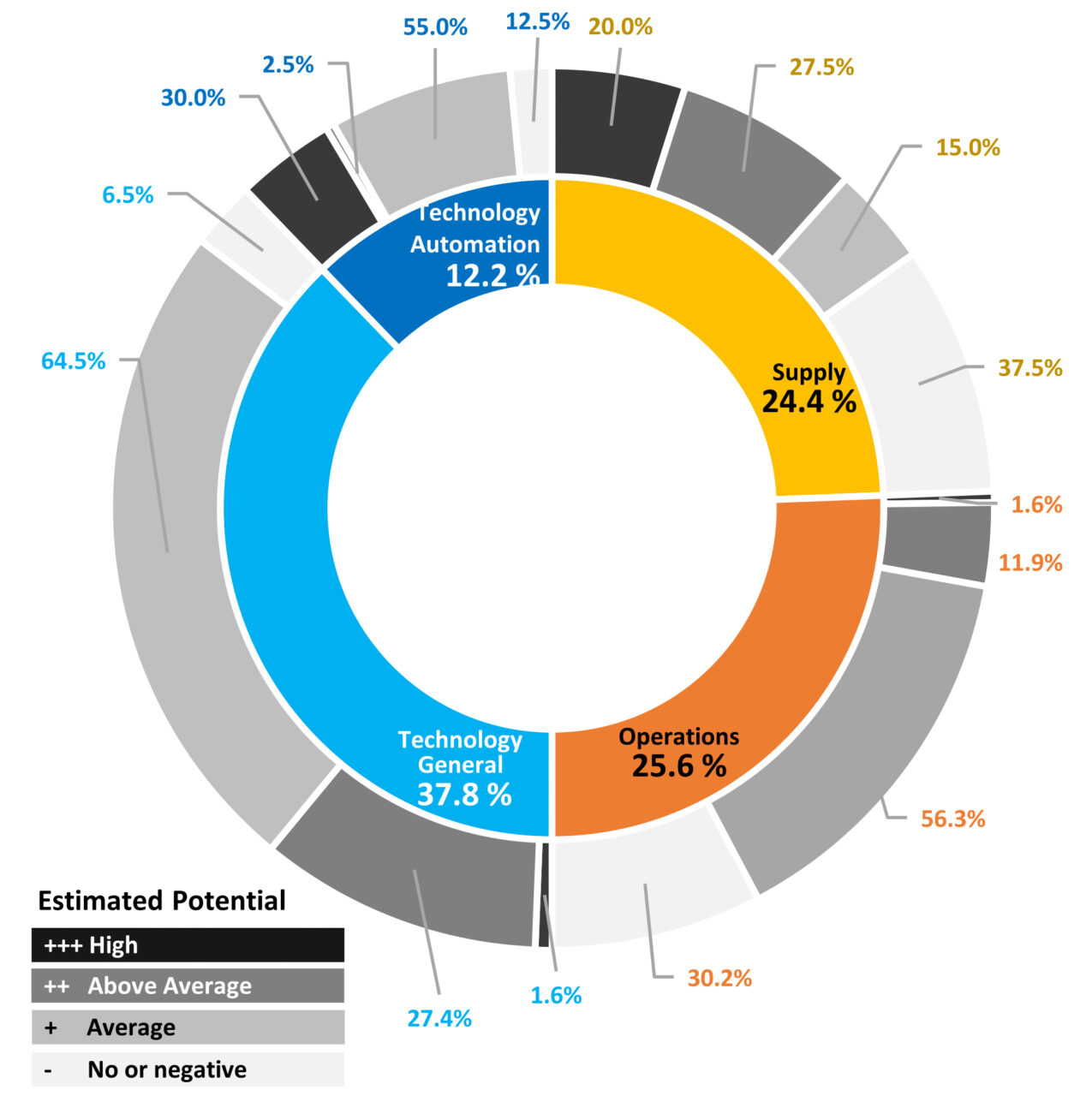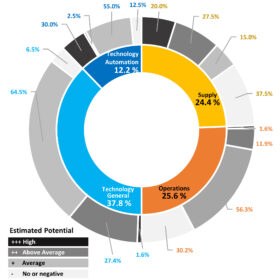
Many aspects contribute to the further development of the technologies, but no single game changer could be identified. Developments are expected in automation; revolutionary changes are perceived as unlikely.
Compared to other transport modes, railways provide mobility with high energy, space and resource efficiency, and superior speed, safety and comfort. To improve its relatively small modal share, one wants to have the most accurate expectations possible about future demand, supply and technologies. To address this, we conducted multi-stage interviews of 30 experts from Switzerland and Europe. We looked on perspectives from the railway operator, industry and research and categorized them into supply, operation and technology aspects. We evaluated their potential for improvement, the system impact of the changes, the time horizon of possible implementation, and the effects on the modal shift.
From the interviews and our analysis of the scientific, regulatory and industrial literature, we could derive the following conclusions:
- The most significant developments are expected in the area of automation and control of operational processes in the railway system.
- The system has no single game changer, but many aspects would contribute to small improvements. Revolutionary changes and completely new systems are perceived as unlikely due to cost, benefits, and life cycle aspects.
- Some aspects are likely to be implemented or change faster than others; for instance, supply changes might improve in a short term, while other developments require technology or regulatory steps likely to take more time.
- Technological developments alone are filtered by the availability of funding, regulations, and efforts required to implement and achieve a critical mass. In general, there will be trade-offs between costs, quality and performance, and also cross-system effects with private mobility.
 Michael Nold received the Dipl.-Ing. degree in mechanical engineering from the Karlsruhe Institute of Technology in 2014. He is currently pursuing the Ph.D. degree with the Chair of Transport Systems, Swiss Federal Institute of Technology, ETH Zurich. From 2014 to 2018, he worked as a Project Manager and an Engineer with Rhaetian Railway in the rolling stock division. Responsible for the system areas of responsibility: developments, calculations and measurement technology.
Michael Nold received the Dipl.-Ing. degree in mechanical engineering from the Karlsruhe Institute of Technology in 2014. He is currently pursuing the Ph.D. degree with the Chair of Transport Systems, Swiss Federal Institute of Technology, ETH Zurich. From 2014 to 2018, he worked as a Project Manager and an Engineer with Rhaetian Railway in the rolling stock division. Responsible for the system areas of responsibility: developments, calculations and measurement technology.
 Francesco Corman holds the chair of Transport Systems at the Institute of Transport Planning and Systems, Swiss Federal Institute of Technology, ETH Zurich. He has a PhD in Transport Sciences from TUDelft, the Netherlands, further academic experience at KU Leuven, and practical experience as data science consultant at IBM. His main research interests are in the application of quantitative methods and operations research to transport systems, especially on the operational perspective, public transport, railways and logistics.
Francesco Corman holds the chair of Transport Systems at the Institute of Transport Planning and Systems, Swiss Federal Institute of Technology, ETH Zurich. He has a PhD in Transport Sciences from TUDelft, the Netherlands, further academic experience at KU Leuven, and practical experience as data science consultant at IBM. His main research interests are in the application of quantitative methods and operations research to transport systems, especially on the operational perspective, public transport, railways and logistics.
